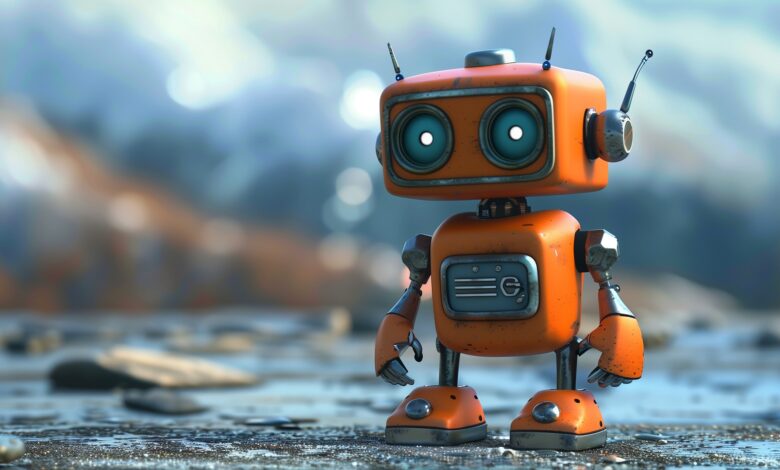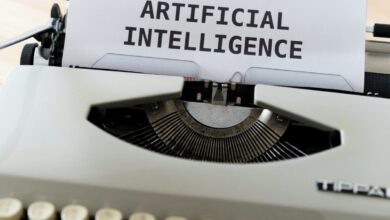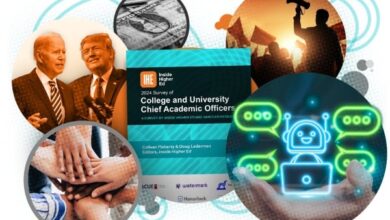The market size in the AI market is projected to reach $184bn in 2024

We can often get very excited about breakthroughs in Artificial Intelligence and how there will be seismic changes in the way in which it shapes the future. However, as those interested in AI know, the technology is very much already embedded in so many of our day-to-day transactions that it is already transforming the ways in which we work, rest and play.
For decades, the media has jumped on the big tech stories, including human-like robots that will do all the basic household chores for us. As far back as 1966, we were introduced to Mabel The Robot Housemaid, who was going to be doing all the tasks by 1976. While that failed to be a reality, AI has seamlessly integrated itself into all our lives, and while there might not be any Mables, many of us have assistants called Alexa, Siri, and Cortana.
These robots may not be able to do the ironing for us, but they can be used to turn the lights on and off, program the oven, or control our heating systems when we are not around. Rather than take over all the physical work, they help us in the background and are integrated into our homes. According to today’s experts, by 2033, robots will be doing almost 40% of our housework. This seems somewhat similar to the 1966 claims, but this is backed up by data from Japan’s Ochanomizu and the UK’s University of Oxford. 65 AI experts were asked to predict what everyday tasks will become automated within the next five to ten years.
The study looked at the question “what kind of futures are imagined for unpaid work? If robots take our jobs, will they at least also take out the trash for us?” It is suggested that the time people spend doing housework will decrease by 46% in the next decade. However, the biggest task that is likely to become more automated is grocery shopping. The experts predict that by 2033 almost 60% of our grocery shop will be performed by AI. However, it is unlikely that machines will be trusted with caring responsibilities such as looking after the elderly or children. Even if AI had the technical ability to undertake these tasks, the studies experts believe there would be acceptability issues of delegating childcare to machines due to potential developmental impacts on the child and privacy implications.
So, if AI is not looking after our children or doing the ironing, what tasks is it doing? Given the market size, this sector is a massive part of the global economy. The most recent statistics predict it will be worth US$ 184.00bn in 2024. However, that is a small fry compared to forecasts for 2030. The market is expected to grow at almost 29% and will be worth a staggering US$826 billion by the end of the decade.
Here are some areas where AI plays an integral part in our lives, so much so that we almost forget how we functioned before.
We open our phones with face IDs. It is AI that enables this functionality. Using biometrics, the device can see you in 3D and capture images of your face using 30,000 invisible infrared dots. Then, using machine learning algorithms, it compares the scan of your face with what it has stored on file to determine if it is you or an intruder trying to access your phone. Apple claims that the chance of fooling its FaceID is one in a million
Once our phones are open, there are many places we might choose to go. Some people head off to check social media or catch up on the news. Other people use their phones for entertainment, like online games, or to visit an online casino. AI and algorithms are integral to the functioning of these sites, with AI involved in everything from customer services to verifying payments and paying out winnings. Players get a personalised experience as the AI learns which games they enjoy playing, which means players can choose from the newest games that are on offer. However, rather than trawling through all the latest releases, the system can learn from what they have played before and offer them something similar to play next.
AI also updates social media feeds. What a user sees is personalised because the algorithm has learned what posts you react to based on your history. It makes friend suggestions and news posts. The next step for AI is to recognise better and, filter out misinformation, and prevent cyberbullying. Getting rid of fake news is even more crucial as 2024 is a global year of general elections.
We use spell check and other tools like Grammarly when we write on our computers and phones, whether to send emails, messages, or reports. These help us create error-free messages by using natural language processing and suggestions. More AI is involved when we send and receive messages with spam filters, blocking some emails and sending them to our junk boxes. In addition, anti-virus software employs machine learning to protect our email accounts and computers.
While these examples all happen behind the scenes, one of the most notable changes in recent years is our use of digital voice assistants. Whether we want to get directions or find out what the weather will be like, Siri, Alexa, Google Home, and Cortana accompany us wherever we go. They have become indispensable for many people who use them as a co-pilot when driving and a general source of endless information around the home. These assistants use natural language processors and generators driven by AI to answer all the questions. They are increasingly programmed to give ‘human-like’ responses and can even sound offended at times.
Since 1966, we have dreamed of robots doing the housework, and while that is not a reality, our homes are becoming increasingly ‘smart’. We have thermostats that allow us to control the heating from our phones and fridges that can create shopping lists based on what is no longer in the refrigerator. They can also recommend what you might like to buy as an accompaniment based on what is in your fridge, such as wine or condiments.
There is still no sign of Mabel, but maybe she will put in an appearance one of these days.
Want to learn more about AI and big data from industry leaders? Check out AI & Big Data Expo taking place in Amsterdam, California, and London. The comprehensive event is co-located with other leading events including Intelligent Automation Conference, BlockX, Digital Transformation Week, and Cyber Security & Cloud Expo.
Explore other upcoming enterprise technology events and webinars powered by TechForge here.



